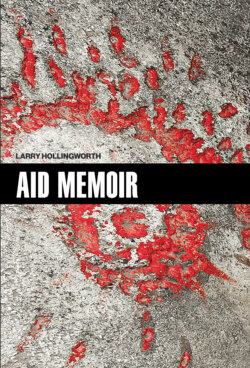Читать книгу Aid Memoir - Larry Hollingworth - Страница 10
Foreword
ОглавлениеBy Jamie McGoldrick
The release of a second edition of this book is extremely timely. We are given a personal insight into the shaping of the international response and assistance culture when modern humanitarianism was in its infancy. This insight underscores the increasing threats and impediments to humanitarian action today, both ideological and overwhelmingly political. These are seen in shrinking operating space, given counter terrorism legislation that effectively criminalises humanitarian action, and insufficient funding, based more than ever on a geo-political calculus.
In this revised version, Larry’s trademark dictum shines through brightly as “to thine own self be true.” He lays bare the trials and tribulations during the early years of the Balkans conflict in this personal account of perseverance, humility, and genuine human empathy in one of contemporary history’s darkest times.
Larry shepherds the reader through the humanitarian nightmare that had befallen the people of the Balkans in the early 1990s through a hands-on account, which grows darker with each chapter. He writes that he “felt close to the refugees but not close enough to really understand.” But what he lacked in understanding he made up for in guile, bravery, and resilience as he battled a conveyor belt of incidents and challenges that tested his resolve as a front-line humanitarian worker.
This is an emotional journey without maps, peppered with belligerent and uncaring people in power, and others showing extraordinary kindness as they tried to help thousands of civilians caught up in the horror and chaos of the conflict.
The wars in the Balkans, Rwanda, and Somalia in the 1990s, changed forever the role of future international humanitarian response. As such, the earlier missionary zeal has now been replaced by a more pragmatic and business-like approach. This book takes us back and captures a period of humanitarian response and helps chart a necessary course through the dominant forces of all things politics ruling our work. The role and interference by States started in earnest during this period. Politicization of aid and exploitation of humanitarian agencies often lead to unprincipled and unprofessional behaviour and heightened the need for reform. Humanitarian principles were stretched with the blurring of lines at the field level. Increasingly, since those early days, it has become the norm for military actors to operate alongside humanitarians, private contractors, political actors, and member states working in the deep field.
Sadly, as a result, conflict resolution and mediation are interwoven in the work of humanitarian response. The substance of humanitarian work increasingly replaces political discourse resulting in inaction or humanitarian action being based solely on political or military imperatives.
As humanitarians, this book should be a reminder to our own conscience. The book reconfirms the criticality of humanitarian principles in action and being close to the people in need. Larry has taken the hard lessons and loss of innocence from his time in the Balkans and set out to improve the humanitarian system. The growth and progress at the International Institute of Humanitarian Affairs at Fordham University, and the thousands of graduates and trained humanitarians who have passed through its doors, are a testament to Larry’s mission.
I count myself very fortunate to have worked with him at close quarters and personally benefited from his sage advice and front-line experiences.
